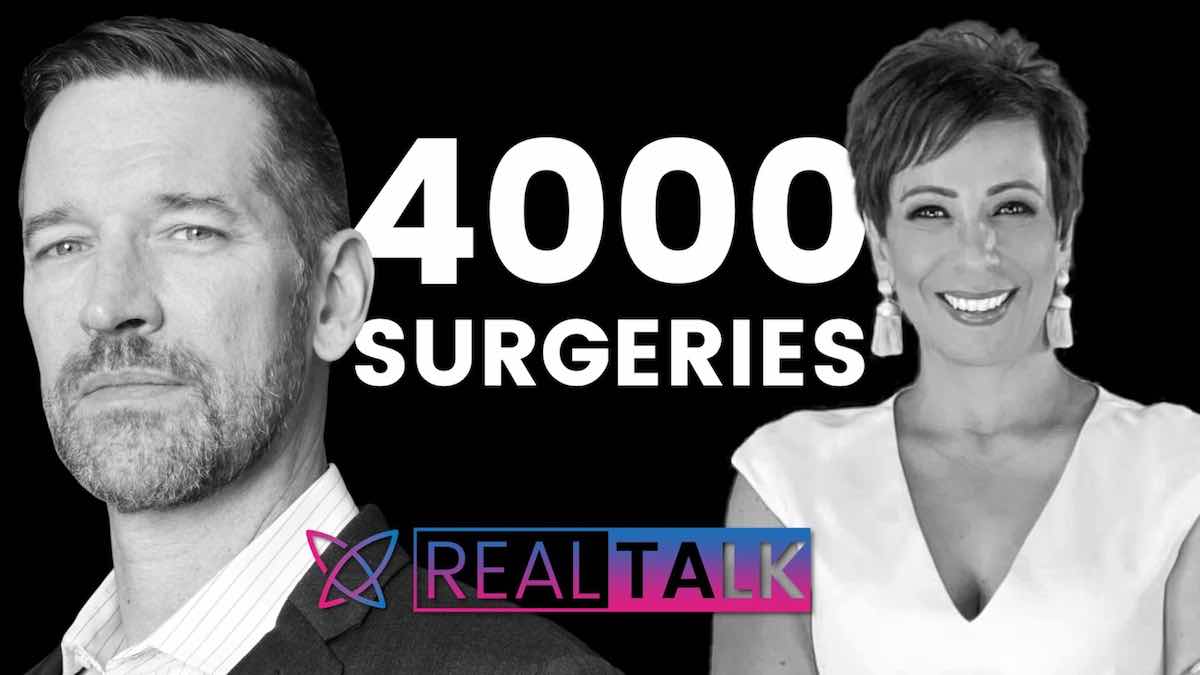Mansplaining — what is that?
Welcome back to the Dr. Rich channel. Today, we’re going to talk about mansplaining and what it’s like to be a male women’s health professional who talks to women about women’s health topics — without being a total mansplainer!
Stick around to the end to find out if mansplaining could ever actually be a good thing.
No, seriously — stick around to the end because otherwise that’ll be taken out of context and will seem like a total sexist thing!
Crap.
My marketing agency told me I needed this hook as a click-baity thing, but I already regret it! 🤣
Don’t have time to read this post? Watch the video here instead!
Hi, I’m Dr. Rich, and my passion is to provide every woman with practical knowledge about the world of women’s health.
Does that mean mansplaining?
Well, it’s time to address the elephant in the room. So since I talk so much about women’s health issues (and I am a man), I thought we ought to address the issue of mansplaining. To be honest with you… I’d really never even heard of the term until last week!
[Flashback to an earlier video planning session]
Doctor Rich:
Where’s the topic for next week though?
Marketing Agent:
So for next week, I was thinking… Since you’re a male doctor that only serves women… I thought it’d be really cool to do a video on mansplaining.
Doctor Rich:
Why would I talk about manscaping?
Marketing Agent:
You don’t want to talk about manscaping! Mansplaining!
Doctor Rich:
What is that?
Marketing Agent:
You don’t know what that is?
Doctor Rich:
What are you talking about right now?
Doctor Rich:
So it got me thinking… since I’m a professional health educator and I’m continuously explaining women’s health topics (such as menstruation and prolapse) to women of all ages as my job…
But I suppose I have to be careful to not fall into the category of mansplaining. So let’s talk about it!
First off, if you’re like me… a week ago, I didn’t even know what mansplaining was!
So let me mansplain it to you… just kidding!
In my extensive research, I came across an example on YouTube with a JP Sears video. It’s a highly satirical video, but it very succinctly demonstrates what mansplaining is:
[Watching the video]
JP Spears:
Now, let’s take a look at a real-life situation that many *might* say is unnecessary mansplaining:
Brent the Mansplainer:
Hello, Sarah, how was your weekend?
Sarah:
It was so great. I had an opportunity to ride my bike—
Brent the Mansplainer:
You know… bicycles work best when you’re pedaling forward. That way the bicycle will move forward. And because you’re sitting on it, your body also will be moving forward!
JP Spears:
Brent’s interruption is valid because Sarah said the word ”bike” — and Brent knows a lot about bikes.
Brent the Mansplainer:
I had one when I was six!
JP Spears:
Sarah literally would not know what to do with herself had Brent not chimed in with key specifics to help shape her understanding of the world. Great job, Brent!
Doctor Rich:
Now mansplaining (as I now understand it) is essentially when a man explains something to a woman that she already knows… but he assumes that she doesn’t know it just because she’s a woman. So understandably, this could make women very upset at our gender.
So what other terms are there that could help us better understand mansplaining?
[Watching a video of a woman talking about mansplaining]:
And some people would argue that using language like mansplaining is fair, given the circumstances. But that doesn’t justify the use of words like mansplaining! Here are some other words you might use instead: patronizing, arrogant, condescending, supercilious, pretentious, insolent, snotty, egotistical, head up one’s own @$&…
Doctor Rich:
Women and men can have conversations. Men can explain things to women… but they shouldn’t do it in a way that they believe women don’t understand what they’re talking about simply because they’re a woman!
Furthermore, you shouldn’t do it in a way that’s arrogant or condescending or egotistical. Basically… just don’t be a d*@$!
So how does this have anything to do with being a male women’s health professional? Every day, I’m explaining complicated topics like endometriosis, pelvic organ prolapse, stress incontinence, and complicated devices like neuromodulation. These are topics that virtually nobody would have a great deal of understanding about… unless they’ve personally suffered or they have a medical background. So when would mansplaining become an issue in health education?
Well, as a male women’s health provider, one example I could think of would be explaining how the period works. So women… They have periods.
I’ve never had a period.
Women know way more about their personal experience than any man ever could… because it’s their body! They’re the ones experiencing it — not me! Here’s why I believe it’s important as a woman’s health provider to make sure that all women have basic information about their periods and other important women’s health topics. Women of all ages come into my practice and some have little to no information about how their body works or, even worse, with incorrect information about how their body works… simply because no one’s taken the time to serve as a resource to give them this information.
Just to clarify for those of you that stuck around to the end (Thank you!): No, I don’t think mansplaining is ever a good idea. It’s important for healthcare providers like myself to give their patients information — basic information — about how their body works, how to take care of it, and different disease processes.
And they should do that regardless of their gender or their patient’s gender. We should never just assume that patients know this stuff… because some of them don’t! They may not have had a resource to teach them this information! And their first encounter with the healthcare system may be the first time they’ve heard it!
And as the world attempts to downsize or rid itself of mansplaining, I’ll be here empowering all women with practical knowledge about important women’s health topics (as I say in my tagline for every video). It’s embarrassing for some people — men and women — when they haven’t been given the basic information about their own health and their own bodies. And I would say even dangerous when they don’t have anybody that they can talk to about it. That’s where we, as healthcare providers, need to step up, provide information, and take care of our patients… just not by mansplaining.
So how do I avoid period talks coming across as mansplaining? The answer is simple: I ask questions and I listen. I find out what the patient knows, and I serve as a resource for what they don’t. And I do the best I can to serve all of my patients.
Thanks for sticking around. Smash the subscribe button for more great content!
No more mansplaining… I promise!




